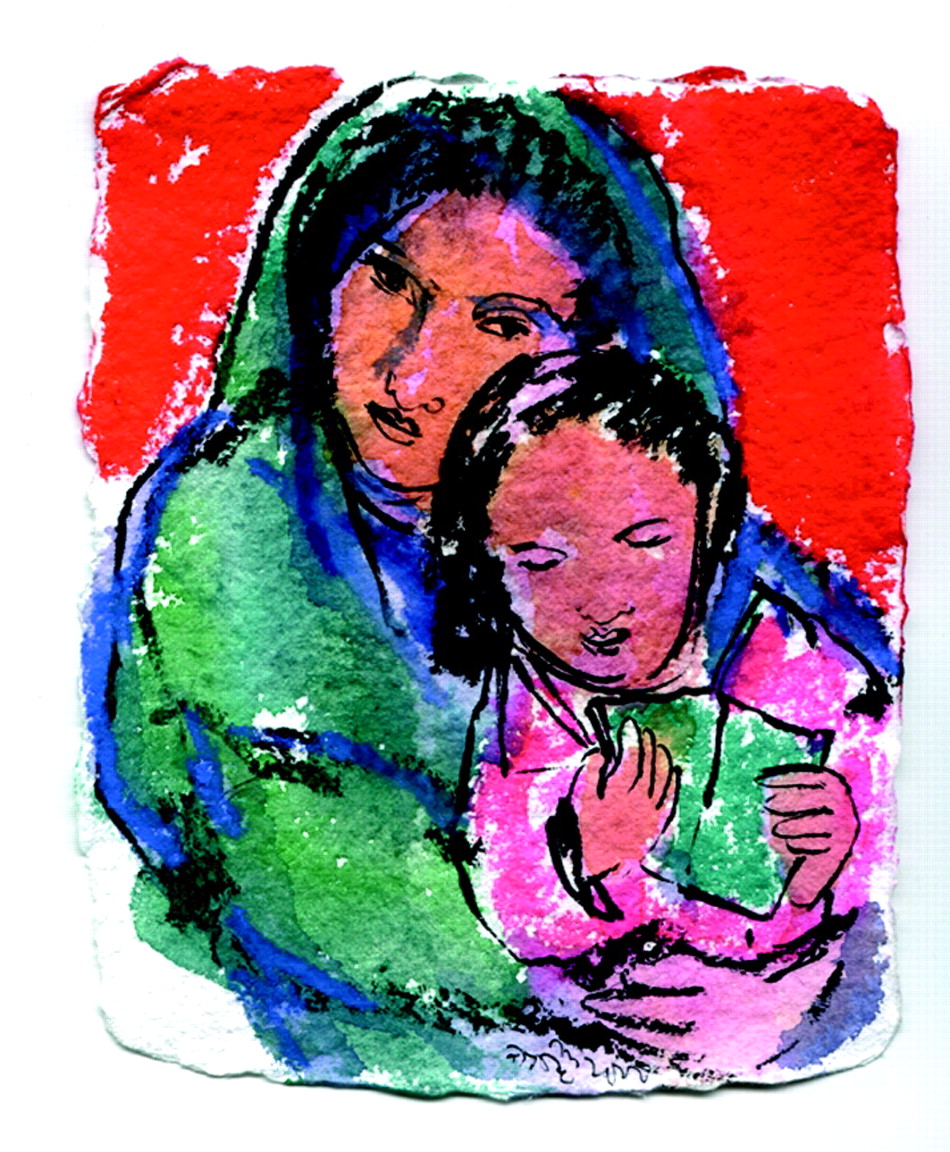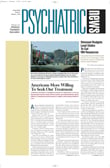An Indian immigrant in Montreal attempts to commit suicide because she finds her home life unbearable. She is referred to the Cultural Consultation Service at the psychiatry department of Jewish General Hospital in Montreal, where she is matched with a psychologist from India who assesses social and cultural factors that could influence her diagnosis, prognosis, and treatment. She and family members are interviewed multiple times, and a treatment plan is drawn up for discussion with the referring clinician.
“The psychologist discovered a huge conflict between her husband and a son-in-law over family obligations related to their migration. The woman was distressed because she was not allowed to visit her grandchildren,” explained psychiatrist Laurence Kirmayer, M.D., who developed and evaluated the cultural consultation service in 1999 with a federal grant. He directs the Cultural and Mental Health Research Unit at the Jewish General Hospital.
“Because the mental health professionals who had treated her before relied on her minimal English to communicate, their knowledge was superficial, and she was diagnosed with treatment-resistant depression,” said Kirmayer at the Canadian Psychiatric Association (CPA) annual meeting in Montreal last November.
“By getting her husband and other family members to talk about the problem, we were able to suggest practical solutions including that family members in India act as mediators. Because the grandmother’s burden was lifted, she became less suicidal,” said Kirmayer, who is also professor and director of the Division of Social and Transcultural Psychiatry at McGill University in Montreal.
The Right Resources
The Indian woman’s case is not atypical. Kirmayer found that about one-third of the 60 cultural consultations performed in 1999 and 2000 by the new service involved cases that had not been evaluated properly because the referring clinicians did not use interpreters or others knowledgeable about the individual’s culture.
“We spent a lot of time finding the appropriate interpreter and doing a thorough evaluation with the patient and with immediate and extended family members. To provide a cultural context for the patient’s and family members’ comments, we match the patient’s country of origin and ethnic, cultural, or religious background with a ‘culture broker’ from a similar background,” said Kirmayer.
Most often, this was a psychiatrist, psychologist, psychiatric nurse, or social worker on the hospital staff or from the larger Montreal region who agreed to serve on the consultation service. “Ideally, the mental health professional served as the interpreter and culture broker. But if we could not find one who matched the patient’s background, then we used professional interpreters and international medical graduates and members of the patient’s ethnic/cultural community as culture brokers,” said Kirmayer.
“They had to be familiar with the Canadian health care and mental health care system and not be alienated from their country of origin or ethnocultural background to be effective,” Kirmayer noted.
A thorough evaluation often required multiple contacts with the patient and his or her family members.
New Issues Uncovered
“The increased communication and understanding of the patient often uncovered new issues that led to a different diagnosis and treatment plan,” said Kirmayer. “We discussed our findings with the referring clinician, who usually agreed to revise the plan.”
Most of the consultations done in 1999 and 2000 involved recent immigrants and refugees from Africa, Southeast Asia, and the Indian subcontinent. Some refugees from Kosovo were referred as well, said Kirmayer. The remaining cases were from Central and South America, Canadian citizens who had emigrated from Europe a few decades ago, aboriginal Canadians (First Nations and Inuit), and foreign students, Kirmayer said.
“But a disproportionate number of cases were from the same countries as our consultants. For example, we had a psychologist from India who spoke five languages, which led to a number of Indians being referred to us,” said Kirmayer.
Refugees were often referred for consultations to clarify the meaning of their behaviors or diagnoses. Many had been persecuted and tortured because of their political views, ethnicity, or religion and were seeking political asylum in Canada.
“Some of our consultants knew about specific groups’ political and ethnic conflicts, which helped to validate the refugee’s story and filled in gaps the refugee could not remember because of being dissociative. The referring clinician sometimes tended to assume the stories were fabricated as a convenient way to enter Canada,” said Kirmayer.
Another important skill was understanding the family structure in the patient’s country of origin and cultural views on marriage, divorce, and gender roles, according to Kirmayer.
Cultural Biases Challenged
“Occasionally, we had to challenge our cultural biases, such as assuming that arranged marriages are a recipe for misery, although there is no evidence to support that view,” said Kirmayer.
Consultants also needed to understand the impact of migration on families. Often there was a loss of extended family and communal supports, changes in social status and gender roles, and intergenerational conflicts, said Kirmayer.
Tensions in the clinician-patient relationship were another reason for consultation referrals. “The patient who, for example, came from a country where physicians were authority figures did not feel comfortable with a physician who expected a dialogue,” said Kirmayer. The consultants try to bridge the gap by explaining to the patient and clinician how their styles and expectations differ.
Clinicians’ View of Program
The referring clinicians who were surveyed about the service gave it high marks for increasing their knowledge of social, cultural, religious, or psychiatric aspects of patient care and improved treatment, according to Kirmayer.
What they liked least was they couldn’t transfer the patient’s care to the consultation service, said Kirmayer.
“We designed our cultural services to be time limited so the consultants could take on new cases. For example, in 1999 and 2000 we received 102 consultation requests regarding individuals from 42 countries who spoke 27 languages. We were able to triage half of them by telephone, including giving advice and directing the clinician to other resources,” said Kirmayer.
Since the research grant ended in 2000, Jewish General Hospital has hired psychiatrist Eric Jarvis, M.D., to direct the cultural consultation service.
But funding remains a critical issue. “Although the Canadian Medicare program pays for the clinician’s services, it doesn’t cover the services of nonmedical culture brokers,” said Kirmayer.
He is encouraged that the Minister of Health recently created a multicultural advisory committee to identify ways to improve delivery of health care services.
Kirmayer would like to see the cultural consultation service replicated in other cities. He also recommended that psychiatrists and mental health professionals be trained to work with interpreters and culture brokers starting in residency and graduate programs.
“We also need to use clinicians’ cultural background and language skills in consultations.”
The evaluation report on the cultural consultation service, clinical resources, and information about the annual Summer Program in Social and Cultural Psychiatry at McGill University, which offers research and clinical training, are available at www.mcgill.ca/psychiatry/ccs/eng/. ▪

